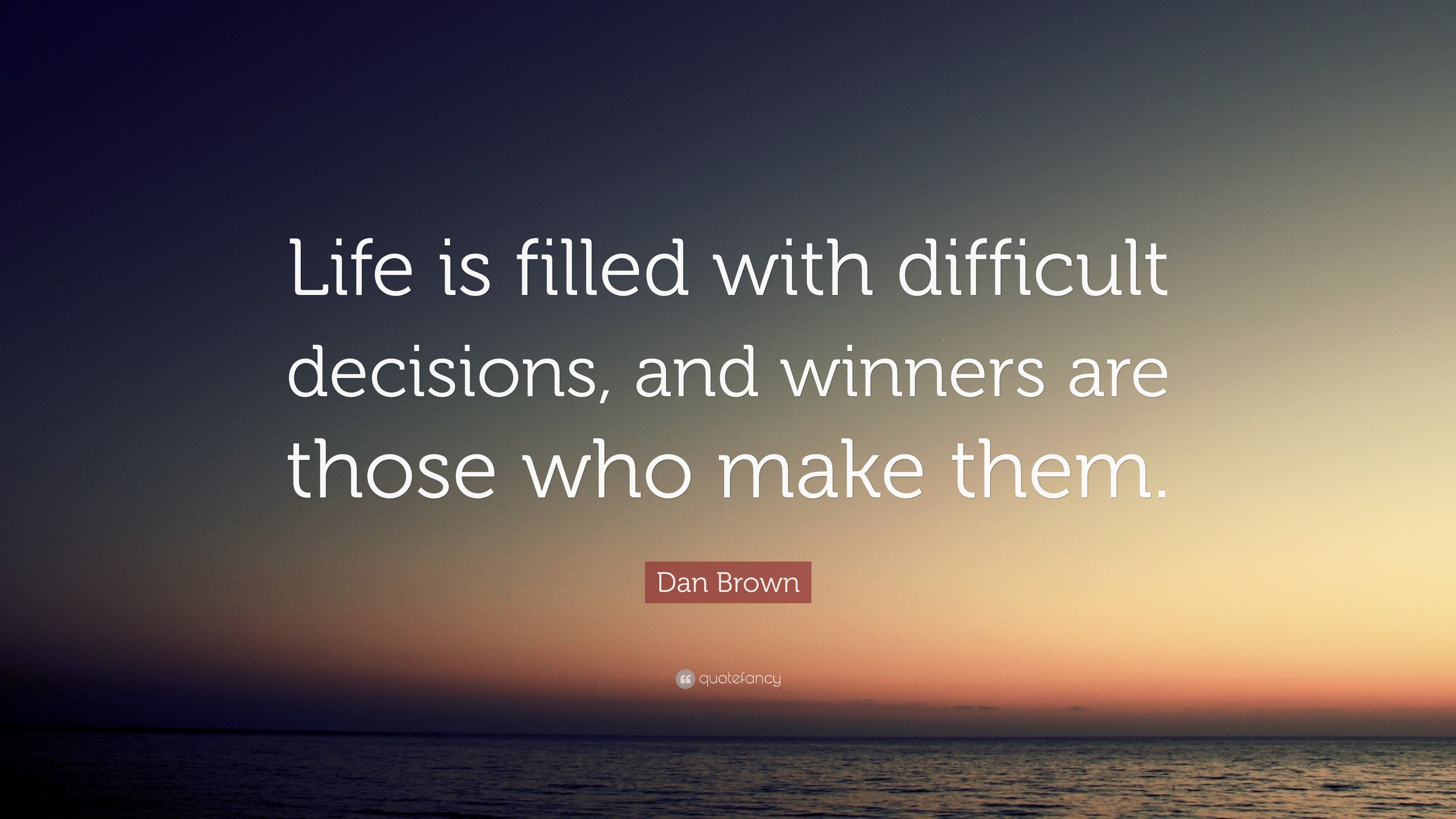

In fact, indecisiveness is a prevalent symptom of major depressive disorder. Indecisiveness can be a symptom of mental health conditions. “While most people will be indecisive at some point, people with aboulomania are indecisive to the point where it is an obsession and severely affects their daily lives.” A symptom of other mental health conditions “Aboulomania is when a person shows signs of pathological indecisiveness,” Perlus explains. “If this is the case, the problem could lie in the fact that a person simply does not have enough information on the subject they need to decide on.” You have aboulomania “Some people may have the confidence and skills to make solid decisions promptly,” Perlus says.


This is less internal and more due to circumstances.

Self-doubt and a lack of confidence could even mean they procrastinate.” You lack proper knowledge of the subject “Yet if they’re insecure, they may be able to choose the decision that’s right for them but struggle with sticking to it. “Perhaps someone does know which direction they should move toward to achieve their goals,” Perlus says. Self-confidence is a key component of decision making. “However, when one begins to lose sight of these goals, they often start to lose sight of how they’ll get to the goals as well, leaving them feeling lost and confused when it comes time to decide which direction they should take.” You lack confidence “Most people strive for some kind of goal, whether professionally, spiritually, or mentally,” Perlus says. Many people get lost in the details and can become overwhelmed. This goes back to focusing on what matters. “If you’re a people pleaser, you may find yourself continuously struggling internally between choice A (what you want) and choice B (what others want),” Perlus says. “This leads to a constant back-and-forth as they struggle to figure out the correct choice.” You’re a people pleaserĭo you constantly worry about what others think? “When someone constantly sees their options categorized as ‘right’ and ‘wrong,’ they may find themselves paralyzed at the thought of accidentally choosing the ‘wrong’ decision,” Perlus says. Perfectionism can lead to numerous health problems, including: “As such, once they’re given the opportunity to make a choice, they’re left looking for someone else to make that choice for them,” Perlus says. “There was never any chance for the person to fail or succeed by themselves. “If someone has grown up with overbearing parents, they may not have had an opportunity to make decisions independently,” says Haley Perlus, PhD, a sport and performance psychologist. The root of your indecision may go back to parental influence. This perpetuates the tendency to default to the relative safety of indecision.” Parental influence “In many cases, the fear and anxiety evoked at the mere thought of having to make a decision can be quite paralyzing. “A ‘good’ decision increases self-worth, and a ‘bad’ decision leads to self-criticism,” Manly says. In this paradigm, decision making can have a negative impact on self-worth. “Over time, the stress and anxiety associated with making decisions leads to an avoidance of making both small and large decisions.” “These fears can carry over into adulthood and lead to the use of indecisiveness as an unconscious coping strategy,” Manly explains. “If, however, decision making becomes associated with making errors or ‘bad choices,’ indecisiveness often results.”įor example, if a parent criticizes a child for making a poor decision, the child will avoid making decisions for fear of being seen as a failure. Carla Marie Manly, a clinical psychologist. “Those raised in environments where decision making is seen as an opportunity to learn and grow tend to feel more comfortable making choices,” says Dr. Indecisiveness certainly can be a learned behavior. Some people are inherently more hesitant when it comes to making decisions. There are many situations that may cause indecisiveness.


 0 kommentar(er)
0 kommentar(er)
